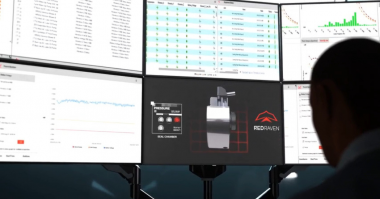Mechanical seal OEMs have developed a wide range of seal models and designs to meet diverse industrial applications. Today’s off-the-shelf seals are built to withstand the harsh chemicals, high temperatures, speeds and pressures commonly found in challenging applications. These seals are easily adaptable to fit the seal chambers in most centrifugal pumps and other rotating equipment. Because of these qualities, it’s rare that customers have to look beyond standard seals.
However, there are situations when an off-the-shelf seal isn’t right for a particular application. When customers have unique requirements for which a standard seal won’t work, seal OEMs either can modify a standard seal by adjusting the adaptive hardware that surrounds it or create a new customized seal.
Modified vs. custom
Modifying an existing seal design requires the OEM to manufacture adaptive hardware around the seal. The seal itself doesn’t change, but the modified seal casing enables it to fit the equipment’s unique properties. OEMs often modify seals when a standard seal is no longer effective because the fluid properties or operating conditions have changed.
Although most applications can be sealed with standard or modified seals, some applications require a custom solution. This can happen when a customer needs to seal a unique piece of equipment or requires a seal for retrofitted equipment for which there is no design history and thus no standard seal.
Custom seals are also used to expand an application’s current operating window or add specific features to address challenges with the application. They may include seal designs that are unique to a new piece of equipment, be required due to space limitations, or when customers are upgrading from a different sealing device to a mechanical seal.
While truly customized seals are uncommon, OEMs could see a slight increase in demand as pumps evolve. When pumps and pump shafts grow larger, they generate higher speeds and pressures, which can exceed standard seal properties. Customers are also looking for seals to play a more significant role in plant reliability, sustainability and cost control. It’s likely that OEMs will expand their standard product lines to include seals that meet these growing expectations, but until then, a customized seal might be the only viable option for specific applications.
Meeting customer challenges
Not only are customers asking more from their seals, but they are also asking more from their seal OEMs. Seal OEMs must provide more value than merely manufacturing a product. They should understand their customers’ specific applications and proactively provide recommendations to improve operating practices, equipment condition, piping plans and seal support systems.
Seal OEMs should possess the knowledge and experience to recognize customer challenges — even if their customers don’t recognize them — and be able to recommend sealing strategies to overcome these challenges. They must also have the tools to analyze customers’ seals and predict how they will perform under unique and changing conditions.
Engineering expertise
In most applications, a standard seal will meet customer expectations — presuming the equipment is in good condition, the operating variables are correct, the customer operates the equipment correctly, and the infrastructure around the seal is installed accurately.
Blog
Manufacturing a genuinely custom seal is only necessary when modifying a standard seal’s materials or adaptive hardware isn’t a practical solution to meet a customer’s needs. And, while custom seals make up only a small portion of industrial seals, they do represent customers’ most significant challenges and ultimately help define a plant’s overall reliability, safety and environmental impact.
Learn about the entire Flowserve Mechanical Seal portfolio.





Comments